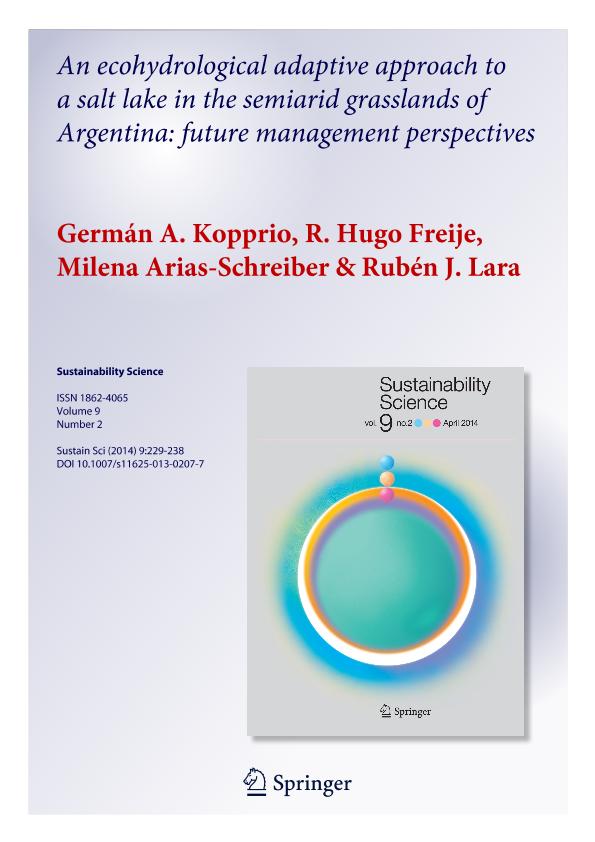Artículo
An ecohydrological adaptive approach to a salt lake in the semiarid grasslands of Argentina: future management perspectives
Fecha de publicación:
04/2014
Editorial:
Springer Tokyo
Revista:
Sustainability Science
ISSN:
1862-4065
Idioma:
Inglés
Tipo de recurso:
Artículo publicado
Clasificación temática:
Resumen
Past extreme hydrological events, future climate change scenarios and approaches for lake management were studied in the Argentinean Pampa. Anthropogenic climate change will impact water bodies and create enormous challenges for water management. Adaptation strategies are needed urgently to deal with the uncertainties originated by climate change on inland or coastal basins. Only a few studies have addressed practical strategies to mitigate global change impacts on lakes and practically none in South America. The purpose of this work was to discuss management options and seek better adaptive alternatives for the nature reserve Lake Chasicó, and to propose future management experiments and actions at a regional level. The ecohydrological approach is likely to increase the ecological resilience of the lake, dampen climate-driven hydrological variations and reduce eutrophication problems. Future projects should include wetland creation, fish management, water quality control, engineering work studies and education programs. Ecohydrology as an integrative natural science should be considered as a water management strategy to build ecological resilience into water bodies. The building of social-ecological resilience is also crucial for the stability of coupled human-ecological systems. The integration of natural and social sciences into sustainability approaches represents a robust strategy for adapting to climate change.
Palabras clave:
Climate Change
,
Eutrophication
,
Ecohydrology
,
Salt Lake
Archivos asociados
Licencia
Identificadores
Colecciones
Articulos(IADO)
Articulos de INST.ARG.DE OCEANOGRAFIA (I)
Articulos de INST.ARG.DE OCEANOGRAFIA (I)
Citación
Kopprio, Germán Adolfo; Freije, Rubén Hugo; Arias Schreiber, Milena; Lara, Ruben Jose; An ecohydrological adaptive approach to a salt lake in the semiarid grasslands of Argentina: future management perspectives; Springer Tokyo; Sustainability Science; 9; 2; 4-2014; 229-238
Compartir




